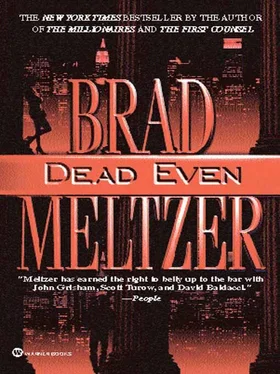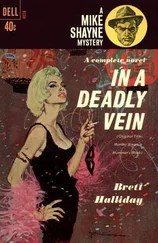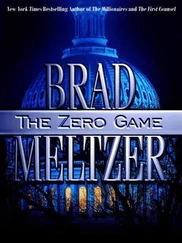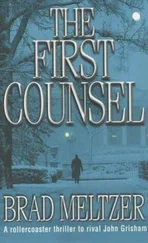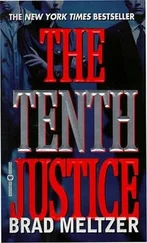“I feel terrible. Now that the adrenaline’s gone, I can’t stop thinking about it. It’s like this gnawing ghost that’s floating around in my stomach. And the worst part is, I’m not sure why I’m upset: is it because I know it was wrong to take it, or simply because I got caught with it?”
“Listen, you can’t change the past. You saw it, you grabbed it, and now you have to live with it. Besides, the way you described it, it sounds like no one in the office even cared that you stole it.”
“Except for Victor. I haven’t seen him yet.”
“Speaking of which, have you told your assistant that it was Victor’s case in the first place?”
“Not yet. We were running around all afternoon, so there really wasn’t time. Besides, I don’t think I’m going to tell him just yet – I want to do a bit more digging before I put that relationship at risk.”
“You still think there might be something else at play?”
“I’m not sure,” Sara said, picking up her blue pantsuit from the floor. “But if this isn’t a Victor-level case, I have no idea how it’s going to save my job.”
When Sara was finished re-dressing for her late-night arraignment, she headed for the door.
“Good luck,” Jared called out. “Make ’em suffer.”
“You don’t have to worry,” Sara said. “The defense is in for some serious hurt.”
At precisely ten-thirty, Sara entered 100 Centre. At the courtroom that was reserved for arraignments, she was surprised to see Guff leaning against the courtroom door.
“What are you doing here?” Sara asked. “You didn’t have to come.”
“You’re my boss,” Guff said. “Where you go, I follow.”
“Well, thanks, Guff. I really appreciate the support. Now we just have to wait for-”
“ADA Tate! What are you charging him with?” a voice boomed from down the hallway.
“Burglary in the second degree,” Sara barked back while Conrad was still thirty feet away.
When the burly prosecutor reached his two colleagues, he asked, “And why’d you choose that?”
“Because burglary in the first degree requires a weapon, or a dangerous instrument, or a physical injury to a victim, and there’s no indication of any of those here.”
“Isn’t that also required for burglary in the second?” Conrad challenged.
“Not if the building is a dwelling,” Sara said, her voice gaining confidence. “And according to the definitions section, 201 East Eighty-second Street is definitely a dwelling. The victim sleeps there every night. I called her myself.”
Conrad smiled. “Good for you. Now what about criminal trespass? Why not charge him with that?”
“Because by taking the watch, the golf ball, and the four hundred dollars, the defendant committed a crime, making criminal trespass too light a charge.”
“What about robbery?”
“According to the cop, there was no force used. That ruled out robbery.”
“And what about breaking and entering?” Conrad asked.
“That’s where you were bullshitting me,” Sara said. “In New York, there’s no such thing as breaking and entering.”
“Are you sure?”
Sara stared him down. “Of course I’m sure. It took me an hour to figure that one out. Now can we go inside and get this sucker started?”
“You’re the boss,” Conrad said, gesturing toward the door.
Because of the late hour, Sara expected to find the courtroom mostly empty. But as she stepped inside, she was surprised to see it filled with prosecutors, police officers, court employees, defense attorneys, and recently arrested defendants. Prosecutors sat on the right side of the room, defense attorneys on the left. Defendants were held in a waiting room outside the courtroom until their case was about to be called, and in the center of the courtroom, the judge presided over each arraignment, which usually lasted four or five minutes. In that time, the charges were announced and bail was set.
As she stepped into the room, Sara knew whom she was looking for. From a legal perspective, she realized that arraignments were a vital guarantor of freedom and fairness. But from a strategic perspective, she knew that arraignments played a completely different role, not the least of which was allowing the opposing attorneys to get their first look at each other. A strong defense attorney meant a nightmare for a prosecutor, while a weak one might mean an easy victory. Either way, like football coaches who spy on the following week’s opponents, the prosecutors of the DA’s office loved to know who they’d be facing. Sara was no exception.
“Any idea which one he is?” she asked Conrad as they took a seat in the first row of wooden benches.
Conrad stared at the dozen defense attorneys who were currently sitting, writing, or filing last-minute papers on the left side of the room. “We won’t know until they call him.”
“Oh, no,” Sara said.
“What’s wrong?”
Sara pointed to a tall blond man across the room. He wore a finely tailored suit and carried a black Gucci briefcase. “That’s Lawrence Lake, a partner at my old law firm.”
“I think he’s the one you’re going up against,” Guff said.
“How do you know?” Conrad asked.
“Are you kidding? I can smell the enemy the moment he enters the room. It’s part of my untamed, feral side.”
“You’re crazy.”
“Oh, I’m definitely crazy,” Guff said, squinting his eyes to look fierce. “Crazy like a fox .”
“Or crazy like a psychopath,” Conrad said. Turning to Sara, he asked, “Did you find out anything else about Kozlow?”
“Just what’s in his file. He’s been arrested twice before: once for first-degree assault, the other for first-degree murder. In the assault, he used a switchblade; in the murder, he shoved a screwdriver into someone’s throat.”
“Jesus,” Guff said. “Someone has trouble playing with others.”
“Not according to the jurors. He got off both times.”
“So he’s a good liar,” Conrad said. “But if I were you, I’d look at the facts of those cases. Maybe he’s got a thing for creative violence.”
“I’ll check them tomorrow,” Sara said.
“Now are you all set on the bail amount?” Sara nodded. “What’s your perfect number?” Conrad asked.
“I want it to be at least ten thousand. That’s high enough that he shouldn’t be able to afford it. But I’m asking for fifteen because I know that judges always lower it a bit.”
“I don’t think you’ll have to worry,” Conrad said. “When the judges rotate into night arraignments, they’re usually so pissed off about their jobs, they tend to slap the defendants around just for fun.”
“Let’s hope so,” Sara said, glancing at Lawrence Lake’s Gucci briefcase.
Fifteen minutes later, when the court clerk called the case of State of New York v. Anthony Kozlow , Sara saw Lawrence Lake rise and head toward the defense table.
“Damn,” she whispered under her breath.
“Don’t cave in,” Conrad said.
As Sara walked briskly to the prosecutor’s table, Anthony Kozlow was escorted into the courtroom by one of the court officers. He was wearing a ratty black leather jacket and looked like he hadn’t shaved in days. Sara couldn’t help but wonder how an angry little scrub like him could afford a player like Lake. Approaching the defense table, Kozlow shook Lake’s hand as if the two were old friends.
Staring at Kozlow, Sara felt her forehead break out in sweat. This wasn’t like her old cases at the firm. She wasn’t fighting some faceless corporate entity. She was fighting Tony Kozlow – a man standing only ten feet away. She had never met him, and she didn’t know him, but she was going to do everything in her power to keep him in jail.
Читать дальше
